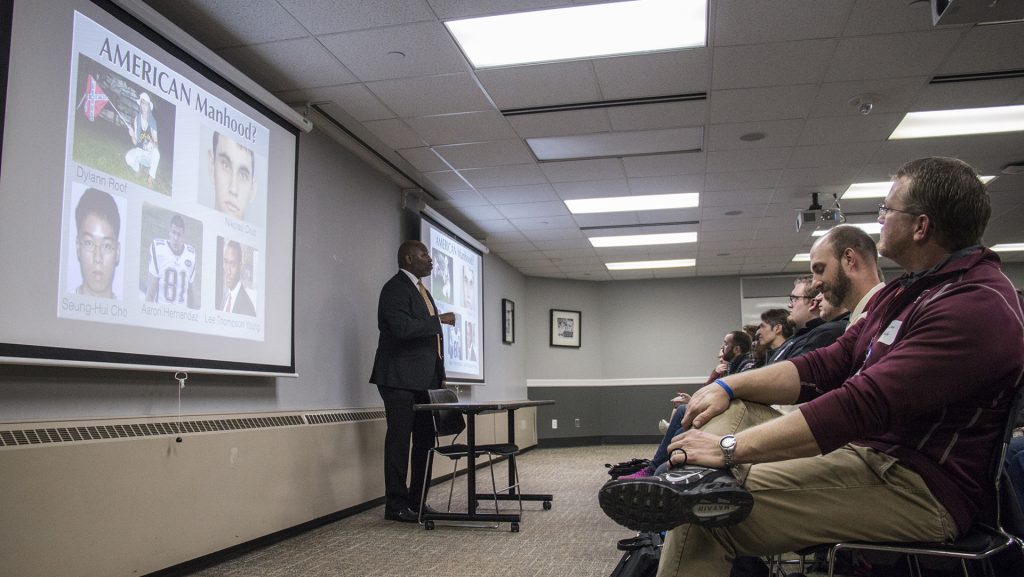Mostly men, and a few women, gathered Wednesday to discuss what is traditionally thought of as a women’s issue: gender-based violence.
The What About Me(n) Summit took place in the IMU, where people from the UI, the Iowa City community, and the Iowa City School District gathered to discuss the role that traditional definitions of masculinity have in violence and in living an authentic life.
According to the Rape Victim Advocacy Program, 1 in 6 women, 1 in 33 men, and 1 in 2 transgender individuals are raped in their lifetime. RVAP Director Adam Robinson said women have led the movement against it for decades.
However, most acts of sexual assault, domestic violence, and larger-scale violence are committed by men.
“What we’re hoping to do is join the leadership of women who have been pushing this for decades,” Robinson said. “We’ll hopefully gauge those identifying men to understand that in the positions of power and privilege that they have, that these forms of violence aren’t going to end until men become more actively involved.”
Andy Winkelmann, the director of educational programming for Hawkeye athletics, said in an email to The Daily Iowan that he was excited to talk to people and “to have conversations with them about the challenges and concerns that they see in their work with boys/men, as well as what they find are some of their best practices.”
The summit began with keynote speaker Bryant K. Smith, the author of Manhood, the Missing Manual: Assembly Instructions, a book that gives instructions on how to help boys construct a healthy masculinity while coming of age.
Smith’s book identifies 10 steps to a healthier masculinity, including teaching men to forgive and accepting them regardless of how they identify.
“Our society tells us that our manhood comes from our propensity for violence,” Smith said.
During his presentation, he showed photos of men, including Parkland, Florida, shooter Nikolas Cruz, who have committed extreme acts of violence. This, he said, is because men are taught that a strong component of manhood is being armed.
Robinson said that even though men, like any human beings, feel the full range of emotions, the only emotions deemed masculine to show are happiness and anger. Consequently, vulnerable emotions are bottled up.
He said this adds fuel to the anger, and this anger is eventually enacted inwards on themselves, or out onto the world. In some cases, this is where extreme violence happens. The summit’s goal was to discuss the ways that masculinity could be reshaped to allow men to express the full range of emotions.
Shawn Myers, an attendee, said he heard about the summit on the radio.



